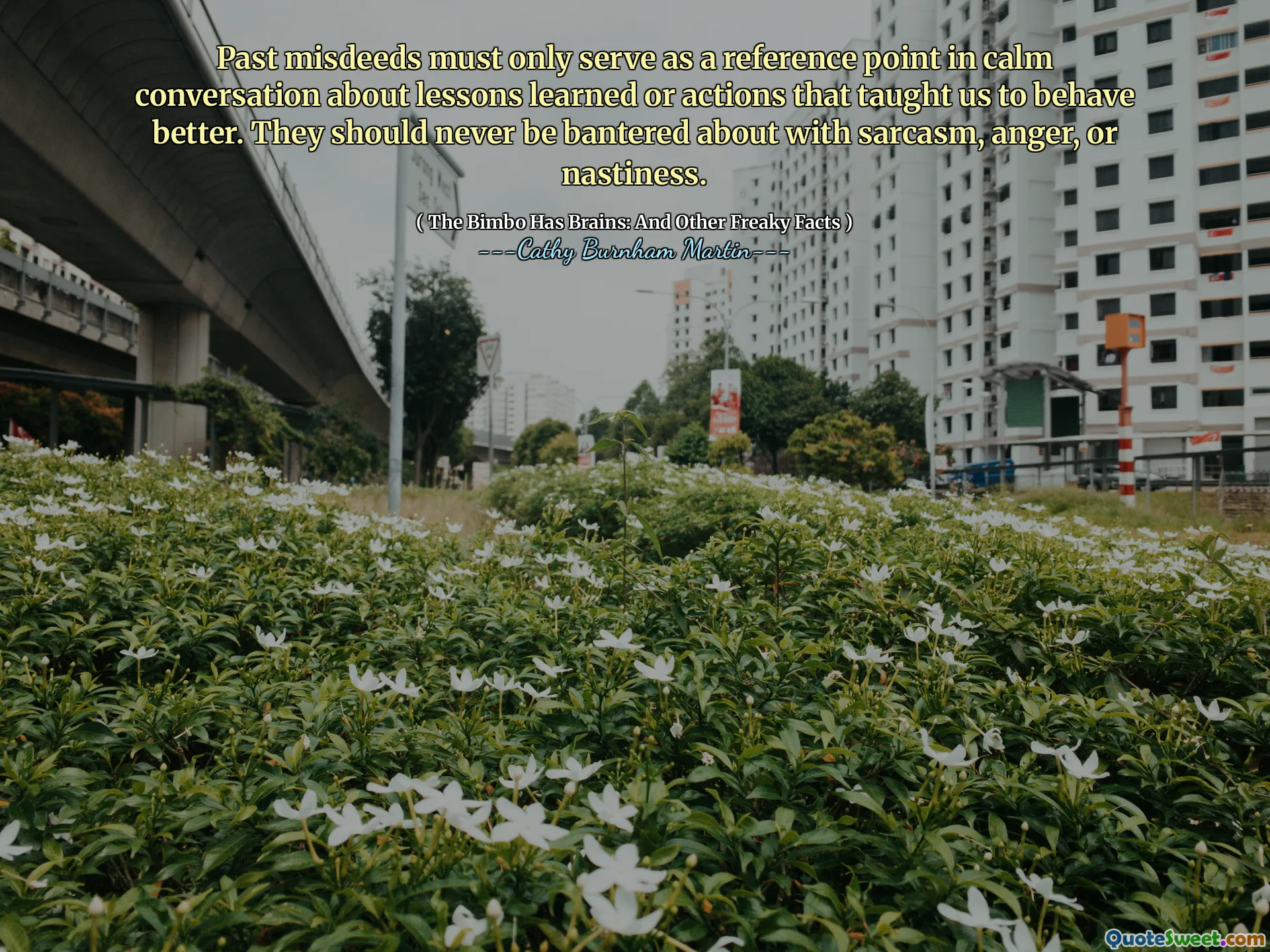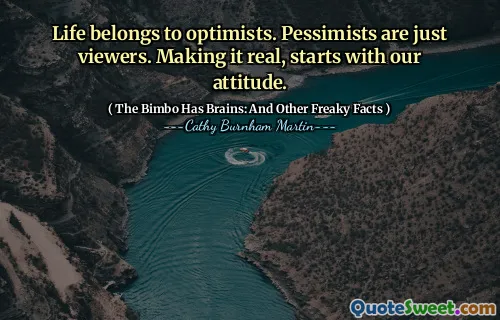
Past misdeeds must only serve as a reference point in calm conversation about lessons learned or actions that taught us to behave better. They should never be bantered about with sarcasm, anger, or nastiness.
Reflecting on this quote, it emphasizes the importance of a mindful and respectful approach when discussing mistakes or past wrongdoings. Our history of errors, whether personal or collective, offers valuable lessons that can guide us toward better decisions and behaviors if approached thoughtfully. When mistakes are examined in a calm, constructive manner, they serve as a foundation for growth and understanding.
However, the quote also cautions against turning these reflections into sources of criticism or ridicule. The use of sarcasm, anger, or nastiness diminishes the potential for genuine learning and damages relationships. Such negative tones can cause defensiveness, resentment, and hinder open dialogue. Instead, fostering a climate of calm conversation enables individuals to acknowledge their faults without shame or hostility, leading to more honest and productive exchanges.
This perspective advocates for empathy and patience, reminding us that mistakes are part of the human experience. Treating past misdeeds as opportunities for constructive dialogue rather than weaponized ammunition for blame helps maintain respect and trust. Upholding this attitude cultivates healthier communication, self-awareness, and personal growth.
Ultimately, this quote serves as a guide for how we should handle our own errors and those of others—with humility, kindness, and the intention to learn rather than to shame. Such an approach nurtures a kinder, more understanding society where mistakes become stepping stones toward improvement, not sources of shame or cruelty.





